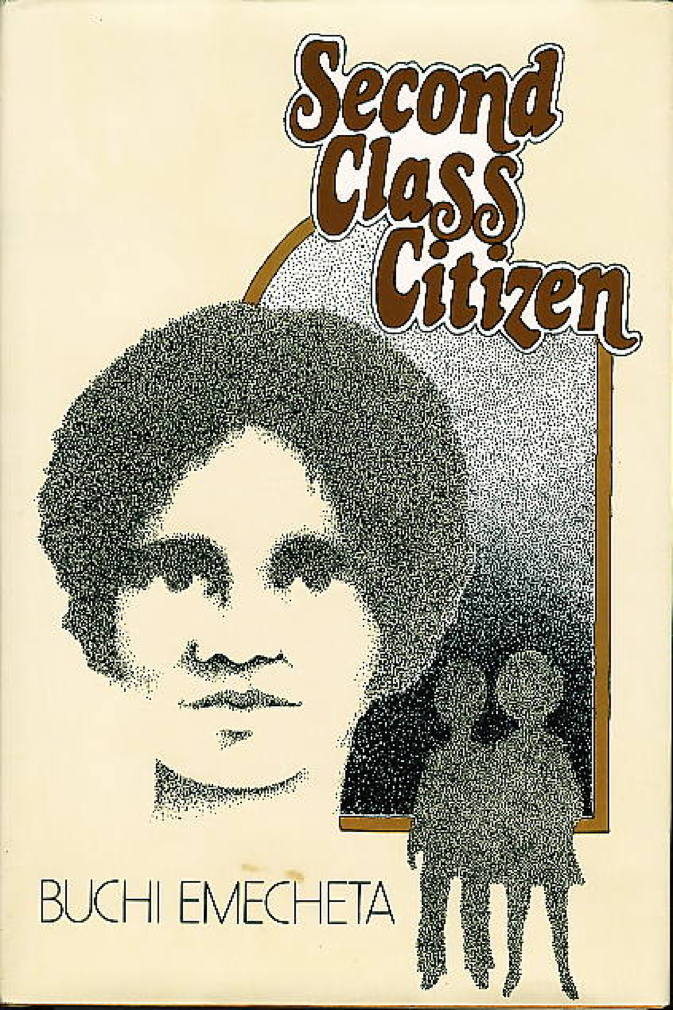"She
[Buchi Emecheta] writes her novel in bits and pieces while her children are still asleep or not so quietly playing" -
Alice Walker
“To my dear children, Florence, Sylvester, Christy and Alice, without whose sweet background noises this book would not have been written” (67).
I admit that like Walker I have trouble understanding the idea that a child’s “noises” would facilitate the writing process. Children are often socially viewed as a heavy responsibility in which mother’s must sacrifice themselves and their dreams for their children, and by extension experience a loss of self. A women’s identity becomes “mother” and little else as all other identity markers become connected to motherhood (working mom, soccer mom, super mom, etc.). Despite having read Walker’s article years ago, I admit that I still had trouble viewing motherhood separate from terms of self-sacrifice. I didn’t really believe that mother’s could be mothers and still follow creative pursuits—let alone vigorously travel. That's changed though. For some time now I've been working almost exclusively with mothers in the mentoring program I manage. During our events, I've seen our their capacity to work while their children gurgle, fuss, play, and even scream. Just the other night at one of our evening events, after an entire day of working and coming home to a fussy child, this mother managed to still complete our creative writing project while simultaneously caring for her son. Not only did she complete the assignment, but also managed to engage her peers I detailed critical thought. It was an amalgamation of these thoughts, readings, and interactions that made me so thrilled when I saw a considerable amount of stories by women traveling abroad with their children.
In Laura Fokkena’s essay “Watching Them Grow Up” she discusses how having a child changed the way she traveled in Egypt: “Despite my marriage to Bassel, an Egyptian I’d met during my first trip, my status as a khawagayya (a foreigner) had always superseded any other claim I might make about my identity. This time, my American passport was secondary. My main role was that of wife, young mother, and grieving daughter-in-law” (121). The role of mother to an Egyptian child enriches Fokkena’s experience in Cairo. While she is still an outsider in many ways, having her daughter grants her privileges in a society that values her first as a mother. More importantly however, in traveling with her daughter the author is asked to re-imagine motherhood and the role children play in the lives of adults. At one point, Fokkena insists they should move into their own place since they are staying in Egypt for a while longer. Her husband resists, but she maintains that Rakaya is a burden on the older women of the family. What she comes to understand though is Egyptian views on children differ from her own American perspective: “Children keep you company. They’re not a burden. All of my husband’s female relatives were professionals, but work was secondary to their duties as daughter, mother, sister, wife. The same was true for men…” (128). The roles of women mesh together as opposed to compete against each other.
 |
| http://www.hipmama.com/ |
It’s essential to consider though that these roles can be fluidly integrated because parenting is the responsibility of the community and not just the father and the mother. Instead of a mother having the “double shift,” all the women and men share in the responsibility at various levels: “In Egypt, taking care of the baby was a shared endeavor. Auntie Zuzu encouraged me to use my newfound free time to study, and I did. Despite all the upheaval, I managed to finish two research projects…” (126). Traveling with her daughter becomes an experience of self-reflection, growth, and allows Fakkema to see the value of a community of women. In the end, her daughter doesn’t keep her from traveling or working, but in fact enables her to have a more complex and rich experience in Egypt.
In her essay “Conversation’s in Denmark,” Lesley-Ann Brown (like Fakkema) describes how traveling with her son enables her participation in a community of mothers. Brown starts by describing how the racial tensions in Denmark make her feel uncomfortable as an African American woman, but she connects to a group of women (some Denmark natives and other’s are not) whose discussions range from race relations in Denmark, parenting in America versus parenting in Denmark, universal healthcare, gender roles, and more. Brown suggests that had it not been for her son and the mothers, she would have had difficulty navigating Danish culture. Like Fokkena, she also describes how childcare is more of a community effort: “When I first arrived, she [friend] was always there to take me around the city, and when I was pregnant, she used to accompany me to the doctor when Benjamin was unable to. She even baby-sat Kai so that I could write” (256). Again, in this instance, having a child while traveling improves the experience as opposed to preventing her ability to travel.
This is what I most enjoy about these essays—they provide an alternative view to the responsibilities of parenting from the normative conversations about motherhood. They help the reader view motherhood as a role that not only enhances ones life, but also encourages spaces of feminist discourse and collaborative communities of women. These women don’t travel despite their children, but with their children.

No comments:
Post a Comment